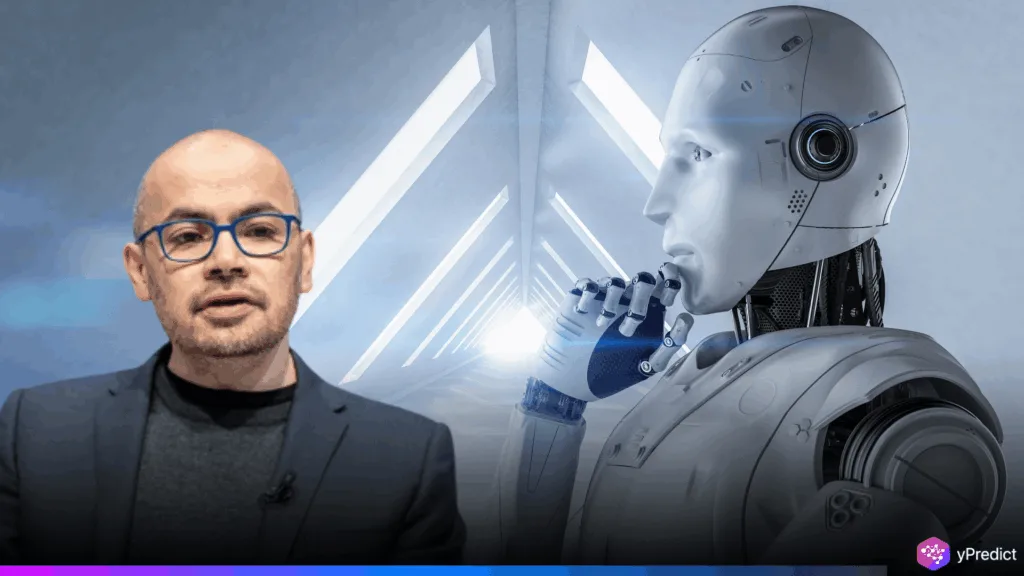
Demis Hassabis, CEO of Google DeepMind, believes the next era will be driven by AI future trends in education, medicine, and software. In an interview with Rowan Cheung of The Rundown AI, he described how projects like Project Astra and Gemini will revolutionize the way we learn, write code, and tackle challenging issues. Additionally, Hassabis is certain that AI is making us smarter, not lazy, thanks to personalized learning and AI-designed medications.
Google’s Bold Leap into AI Future Trends
Hassabis highlighted Gemini 2.5 Pro DeepThink, Veo 3, and Gemini Flash, three significant AI tools introduced at Google I/O 2025. He called DeepThink a “super frontier model on reasoning.” Additionally, he commended Veo 3 for integrating video and audio into one system. According to him, Gemini Flash is perfect for use on smaller devices. These innovations represent how Google DeepMind is pushing AI toward real-world functionality.
Hassabis says the objective is to close the gap between consumer-level applications and research breakthroughs. For example, Veo 3 gives educators and filmmakers more creative options, and DeepThink may help with industry-wide decision-making. Project Astra, an AI assistant with a multimodal, proactive, and context-aware design, was another example.
Although understanding user behavior can be challenging, Hassabis acknowledged that it is essential. “You want something helpful, not annoying,” he said, emphasizing Astra’s future role in seamless daily interactions across devices. Additionally, he made a suggestion that Astra might soon support cross-platform memory features.
Can AI Assistants Reshape How We Learn?
Hassabis believes AI future trends will change how people learn. Google’s LearnLM is a step in that direction. It helps create instant flashcards, recommends YouTube videos for struggling topics, and pinpoints learning gaps. Furthermore, he views it as a route to worldwide customized education, particularly in areas with a shortage of educational resources.
He advised educators to evolve curricula, integrating AI tools into both classroom and at-home settings. He believes AI assistant tools could democratize access to quality education, especially in under-resourced areas. “It’s about using these tools wisely, not replacing teachers,” he noted. These tools can provide personalized study plans, real-time feedback, and even long-term progress tracking.
AI Future Trends Are Redefining Human Potential
According to Hassabis, Google DeepMind is paving the way for hybrid AI systems like AlphaFold, which reduce drug discovery time. “Mapping one protein used to take years. Now, AI can map millions in months,” he said. This technology could lead to treatments for major diseases.
According to Hassabis, coding will get easier as AI trends develop and natural language will take the place of conventional programming. He thinks both professionals and enthusiasts will gain from it. Productivity will increase, but competition will change to focus on speed, distribution, and access to unique datasets.
Additionally, he addressed concerns about AI making people lazy. “It’s not about replacing thinking. It’s about thinking better,” he explained. By assisting users in making meaningful use of tools, we can transform AI from a crutch to a learning partner. That is the core of Google DeepMind’s long-term goals and personalized learning.
What AI Means for Our Future?
AI is reshaping how we learn, work, and even heal. Leaders like Hassabis are still focused on the impact of AI on humans as its future trends continue to develop. From more intelligent education to AI-powered treatments, the future appears more intelligent.
In the years to come, working with AI assistant tools may become a fundamental part of digital literacy. As a result, this shift could empower both individuals and entire industries. Google DeepMind’s innovations show how AI can improve critical thinking, boost scientific research, and close knowledge gaps, paving the way for the future.






